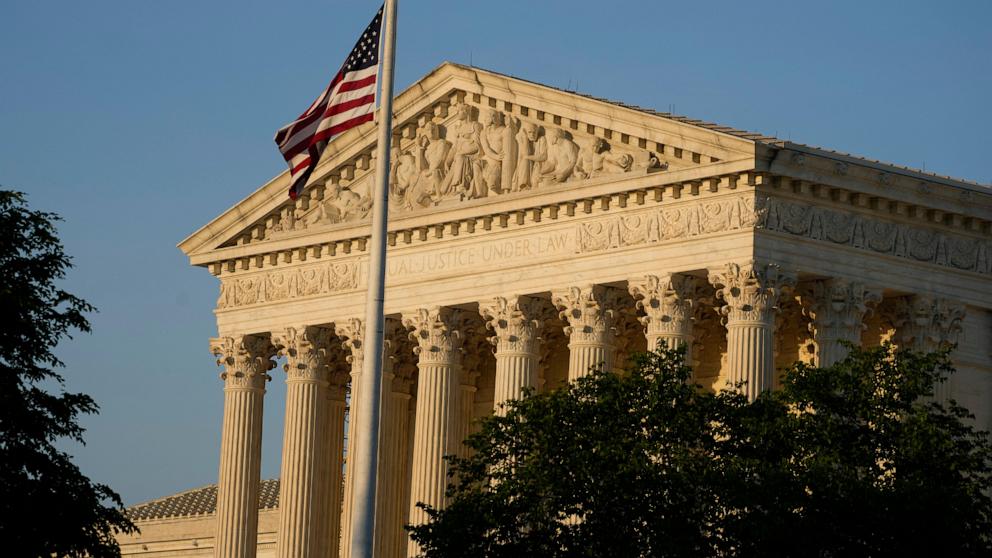Supreme Court hears case of Georgia death row man who claims black jurors were wrongfully excluded

The U.S. Supreme Court has declined to hear the case of a black man on death row in Georgia who claims his trial was unfair because the prosecutor improperly excluded black jurors.
ATLANTA – The U.S. Supreme Court on Tuesday refused to hear the case of a black man on death row in the U.S. state of Georgia, saying his trial was unfair because the prosecutor wrongfully excluded black jurors.
Warren King, 48, was convicted of murder and other crimes in connection with the September 1994 shooting death of supermarket clerk Karen Crosby during a robbery in southeast Georgia. At his trial, the prosecutor excluded 87.5% of eligible black jurors, while only 8.8% of eligible white jurors – all women – were eliminated.
A 1986 U.S. Supreme Court ruling established the so-called “Batson Rule,” which prohibits the exclusion of potential jurors based on their race. King’s lawyers say the prosecutor in his case violated that rule and objected to it when King’s trial lawyers raised concerns during jury selection that he would reject black jurors based on their race.
“Race and gender discrimination should have no place in our criminal justice system, especially when a man’s life is at stake,” Anna Arceneaux, one of King’s lawyers, said in a statement. “Given the blatant and abhorrent nature of the prosecutor’s discrimination in this case, the U.S. Supreme Court should have stepped in to enforce this core constitutional principle.”
The Georgia Supreme Court upheld King’s conviction and sentence without mentioning prosecutor John Johnson’s lengthy criticism of the Batson Rule or the frequency with which it convicted black and female jurors. In the closing stages of the appeal, the 11th U.S. Circuit Court of Appeals called the record in the case “troubling” but agreed with the state court’s findings.
King’s lawyers asked the Supreme Court to intervene. The Supreme Court gave no reason for refusing to hear King’s case. But Justice Ketanji Brown Jackson wrote a dissenting opinion, joined by Justice Sonia Sotomayor, saying she would send the case back to the 11th Circuit to consider King’s claims under the Batson Rule, without bowing to the state court’s findings.
Reached by phone Tuesday, Johnson declined to comment, saying the Supreme Court’s decision “speaks pretty well for itself.”
When it comes to jury selection, each side has a number of “peremptory strikes” available to them that can be used to reject a juror without giving a reason. However, if lawyers believe the opposing side is rejecting jurors solely based on their race, they can file a Batson challenge.
When King’s trial lawyers challenged the state’s use of strikes, the judge asked Johnson to explain his reasoning, but he had previously objected to the use of “statistical analysis” to determine potential discrimination and opposed the Batson procedure.
He then gave reasons for his rejections. The judge accepted his explanations until he said he rejected a juror because “that lady was a black woman” who was from the same area as King and knew him and his family. The judge found that the woman had said she did not know King or his family, found that her rejection violated the Batson Rule, and ordered her to be placed on the jury.
Johnson then again spoke out against the Batson rule, arguing, among other things, “Batson now forces us to look at whether people are black or not. Not whether they are black or white, but whether they are black or not. … it is inappropriate to require a new jury, which I do not approve of in this case,” the court documents state.
He told the judge he was “very angry right now,” but suggested that the woman be added to the jury and his other charges be allowed. The judge and King’s lawyers eventually agreed, and the jury that convicted King consisted of ten white jurors and two black jurors.
A law governing the final phase of an appeals process states that a federal court must defer to the decisions of state courts on substantive issues unless the state court’s findings were unreasonable.
“The Georgia Supreme Court’s narrow-minded and out-of-context evaluation of each of Attorney Johnson’s arguments ignored highly relevant facts and circumstances in three critical areas,” Jackson wrote in her opinion, arguing that the court had ignored “highly relevant facts.”
She said the Georgia Supreme Court ignored the “egregious nature” of the violation for the rejected juror who was eventually seated. The court also said nothing about Johnson’s “several heated outbursts that made his hostility toward Batson evident,” she wrote. And she noted that “racial disparities in a prosecutor’s use of peremptory rejections are strong evidence of discriminatory intent,” and the court failed to mention the fact that Johnson was about 10 times more likely to exclude a black juror than a white juror.
For these reasons, Jackson wrote, the 11th Circuit should have examined the merits of King’s claims without considering the state court’s findings of fact.



